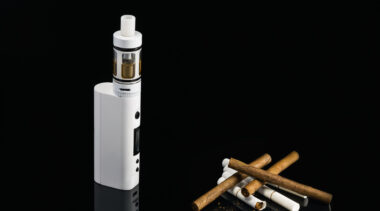Guy Bentley is the director of consumer freedom at Reason Foundation.
Bentley's research focuses on the taxation and regulation of nicotine, tobacco, alcohol, and food. Before joining Reason Foundation, Bentley served as a reporter in London and Washington D.C.
Bentley's work has been featured in The Washington Post, USA Today, Forbes, Time, Business Insider, The Daily Beast, The New York Post, and other publications in the U.S. and U.K.
Bentley graduated with a bachelor's degree in politics and international relations from the University of Nottingham and is based in Washington D.C.
-
Testimony: Flavored Vaping Bans Could Fail to Improve Public Health
Flavored vaping bans will promote further inequalities in the criminal justice system, push tax revenue to other states, increase illicit trade, and fail to improve public health.
-
Testimony: Prohibition of Flavored E-cigarettes Risks Fueling Illicit Market
Prohibition of flavored e-cigarettes, which are overwhelmingly the choice of adult vapers, risks fueling illicit markets, forcing the closure of Rhode Island vape shops and driving vapers back to smoking.
-
Flavored Tobacco Ban in D.C. Would Have Disparate and Discriminatory Consequences
Proposed ban on menthol cigarettes and other flavored tobacco products would criminalize behavior and undermine criminal justice reforms the city claims to care about.
-
New Research on E-Cigarette Use Reveals Positive Public Health Trends
Youth smoking is at the lowest level on record at 4.6 percent, a 70.8 percent decline since 2011.
-
The Facts About Youth Vaping and Tobacco Harm Reduction
E-cigarettes are a significantly safer form of nicotine consumption than combustible cigarettes.
-
Florida Protected Public Health by Rejecting Vaping Ban
The DeSantis administration refused to be taken in by moral panic and public health and the state's small businesses are both better off for it.
-
Maine Should Learn From Massachusetts’ Failed Flavored Tobacco Ban
"A law that increases youth smoking could pose a threat to public health."
-
Testimony: Tobacco Harm Reduction in the UK
Greater product choice and clearer risk communication from both the public and private sectors can ensure that smokers who wish to quit but find e-cigarettes or nicotine replacement therapies unsatisfactory have more options.
-
Testimony: Maine Flavor Ban Could Harm Public Health, Hurt Tax Revenues
Prohibition of flavored e-cigarettes risks fueling illicit markets, forcing the closure of Maine vape shops and driving vapers back to smoking.
-
Testimony: Maine Flavored Tobacco Ban Would Not Achieve Intended Outcomes
Flavored tobacco bans will promote further inequalities in the criminal justice system, push tax revenue to other states, increase the illicit tobacco trade, and fail to improve public health.
-
10 Reasons Why the FDA Should Not Ban Menthol Cigarettes
"Such a ban will trigger criminal penalties, which will disproportionately impact people of color, as well as prioritize criminalization over public health and harm reduction."
-
Rhode Island Should Focus on Tobacco Harm Reduction, Not E-Cigarette Flavor Bans
Legislation in Rhode Island would give smokers access to e-cigarettes as a tool to quit smoking while ensuring youth are prohibited from purchasing vaping products.
-
Californians Get to Vote on State’s Ban of Flavored Tobacco Products
In the Nov. 2022 election, Californians will decide whether to ban the sale of nearly all flavored tobacco products.
-
Testimony: Maryland Should Look to Massachusetts’ Experience with Statewide Flavor Tobacco Ban
Prohibitions on flavored tobacco products, including menthol cigarettes, could negatively impact public health and important criminal justice reforms.
-
Maryland Should Reject Unfair and Ineffective Flavored Tobacco Ban
A ban on flavored tobacco products could negatively impact public health and criminal justice reforms in Maryland.
-
Testimony: New Hampshire Should Reject Proposed Ban on Flavored Vaping Products
The prohibition of flavored e-cigarette products could harm public health and fail to achieve its purpose.
-
Testimony: Maryland’s Flavored Tobacco Ban Could Have Negative Public Health, Criminal Justice Ramifications
The prohibition will most likely promote further inequalities in the criminal justice system, push tax revenue to surrounding states, increase the illicit tobacco trade, and fail to improve public health.
-
The Failures of Flavored Tobacco Bans
Massachusetts is learning how ineffective its ban on all flavored tobacco products has been.


















